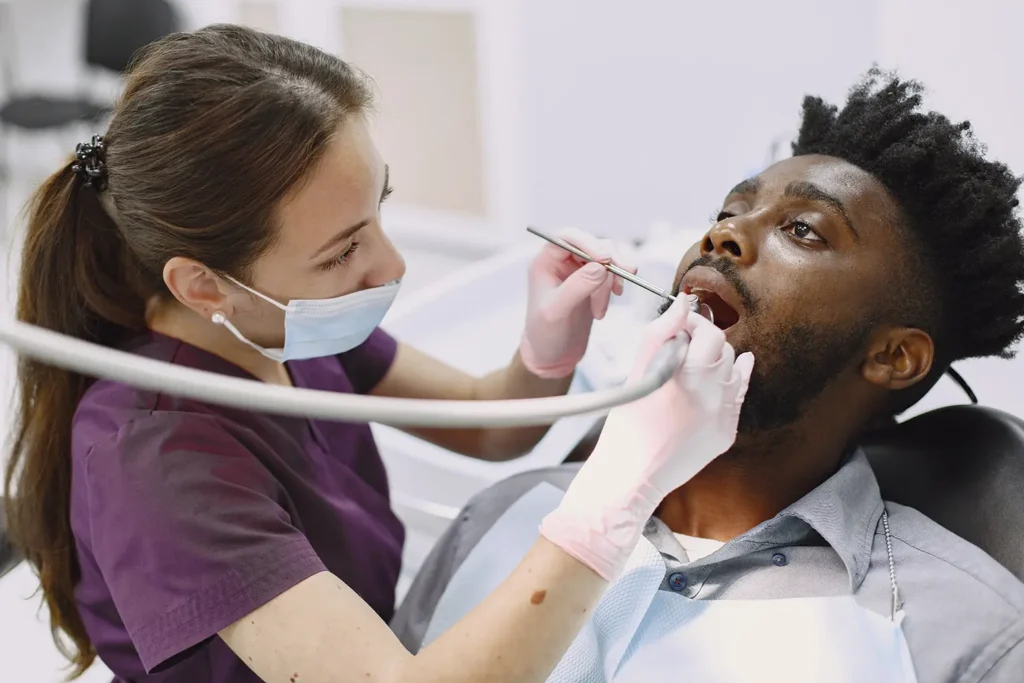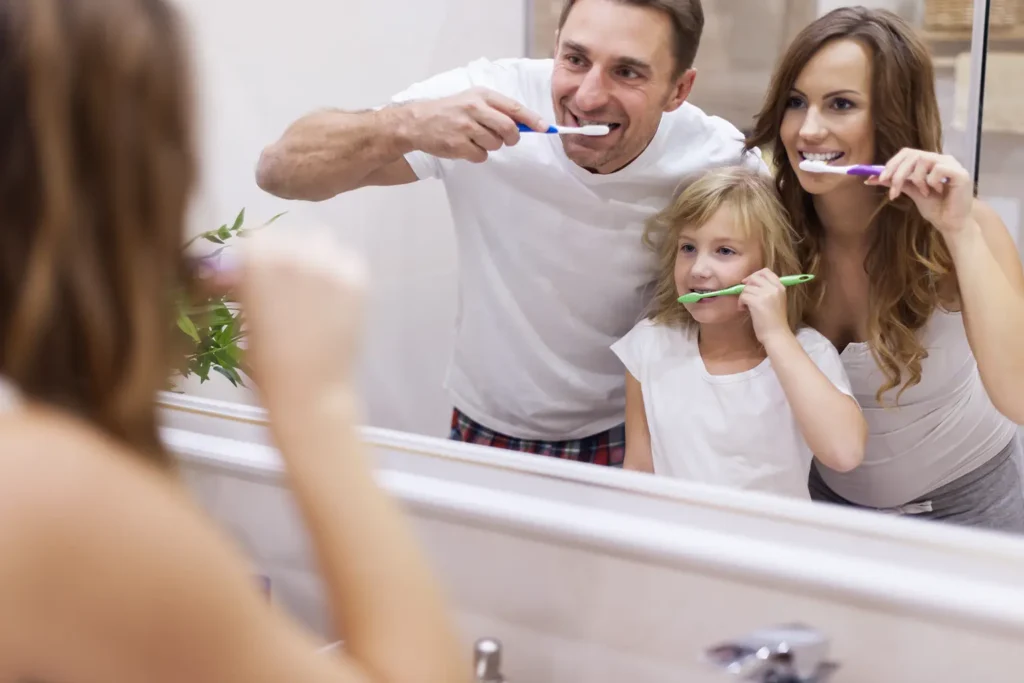Dental hygiene is a critical aspect of maintaining oral health and overall well-being. It encompasses the practices and routines that help keep your teeth, gums, and mouth clean and healthy. This article aims to provide a comprehensive understanding of dental hygiene, its importance, and practical tips on how to improve it.
What Is Dental Hygiene?
Dental hygiene refers to the regular practices and routines that maintain oral health and prevent dental problems. These practices include daily brushing and flossing, regular dental check-ups, and professional cleanings. Good dental hygiene is the foundation of a healthy mouth, which in turn contributes to overall health.
Key Components of Dental Hygiene
- Brushing: Brushing your teeth twice a day with fluoride toothpaste is essential. It removes food particles, plaque, and bacteria that can lead to tooth decay and gum disease.
- Flossing: Daily flossing removes plaque and food particles from between the teeth and under the gumline, areas that a toothbrush cannot reach.
- Rinsing: Using an antiseptic or fluoride mouthwash can help reduce bacteria in the mouth and strengthen tooth enamel.
- Healthy Diet: A balanced diet low in sugar and high in nutrients supports oral health. Foods rich in calcium, phosphorus, and vitamins are particularly beneficial.
- Regular Dental Visits: Professional cleanings and check-ups every six months help prevent and detect dental issues early.
The Purpose of Dental Hygiene
The primary goal of dental hygiene is preventative care. By maintaining good oral hygiene, you can prevent a range of dental problems, including:
Tooth Decay
Tooth decay, or cavities, occurs when plaque, a sticky film of bacteria, forms on the teeth and produces acids that erode tooth enamel. Regular brushing and flossing remove plaque and prevent cavities.
Gum Disease
Gum disease, or periodontal disease, begins with gingivitis, an inflammation of the gums. If untreated, it can progress to periodontitis, leading to tooth loss. Good dental hygiene helps prevent gum disease by removing plaque and reducing inflammation.
Bad Breath
Poor oral hygiene can lead to halitosis or bad breath. Bacteria in the mouth produce foul-smelling compounds. Regular brushing, flossing, and rinsing help control these bacteria.
Tooth Loss
Advanced gum disease and severe tooth decay can result in tooth loss. By preventing these conditions, dental hygiene helps you retain your natural teeth for a lifetime.
Overall Health
Oral health is closely linked to overall health. Poor dental hygiene has been associated with systemic conditions like heart disease, diabetes, and respiratory infections. Maintaining good dental hygiene can contribute to overall well-being.

How Can I Improve My Dental Hygiene?
Improving your dental hygiene involves adopting consistent and effective oral care practices. Here are some practical tips:
Brush Properly
- Technique: Hold your toothbrush at a 45-degree angle to your gums. Use gentle circular motions and short back-and-forth strokes.
- Duration: Brush for at least two minutes, twice a day.
- Tools: Use a soft-bristled toothbrush and fluoride toothpaste. Consider an electric toothbrush for more efficient cleaning.
Floss Daily
- Technique: Use about 18 inches of floss. Wrap it around your fingers and gently guide it between your teeth, curving it around each tooth and sliding it under the gumline.
- Alternatives: If traditional flossing is challenging, consider interdental brushes, water flossers, or floss picks.
Use Mouthwash
- Type: Choose an antiseptic mouthwash to kill bacteria or a fluoride mouthwash to strengthen teeth.
- Frequency: Use mouthwash once a day, ideally after brushing and flossing.
Eat a Healthy Diet
- Nutrients: Include foods rich in calcium (dairy products, leafy greens), phosphorus (meat, fish, eggs), and vitamins (fruits, vegetables) in your diet.
- Limit Sugar: Reduce your intake of sugary snacks and beverages, as they contribute to tooth decay.
Stay Hydrated
- Water: Drink plenty of water throughout the day. It helps wash away food particles and bacteria and keeps your mouth moist.
- Avoid Sugary Drinks: Limit consumption of sodas, sports drinks, and juices high in sugar.
Don’t Smoke
- Tobacco Use: Smoking and using other tobacco products increase the risk of gum disease, tooth loss, and oral cancer. Quitting improves your oral and overall health.
Visit Your Dentist Regularly
- Check-ups: Schedule dental check-ups and cleanings every six months. Your dentist can identify and address any issues early.
- Professional Advice: The dentist can provide personalized advice and recommendations for maintaining good dental hygiene.
The Role of Dental Professionals
Dental professionals play a crucial role in maintaining and improving your dental hygiene. Here’s how they can help:
Regular Cleanings
Professional cleanings remove plaque and tartar that regular brushing and flossing might miss. These cleanings help prevent gum disease and tooth decay.
Dental Examinations
Regular examinations allow your dentist to detect early signs of dental problems, such as cavities, gum disease, and oral cancer. Early detection and treatment can prevent more severe issues.
Education and Advice
Dental professionals provide valuable education on proper oral care techniques and advice tailored to your specific needs. Your dentist can recommend products and practices to enhance your dental hygiene routine.
Preventative Treatments
Preventative treatments, such as fluoride applications and dental sealants, strengthen teeth and protect against decay. Your dentist can advise the best preventative measures for you.
Conclusion
Dental hygiene is essential for maintaining oral health and preventing dental problems. By understanding the importance of dental hygiene and adopting effective practices, you can protect your teeth and gums and contribute to your overall well-being. By incorporating these practices into your daily routine, you’ll be on the path to a healthier, brighter smile.
At Big Sky Family Dental, we are committed to helping you achieve and maintain excellent oral health. Contact us today to schedule your next dental check-up and cleaning. Together, we can ensure that your smile stays healthy and beautiful for years to come.


